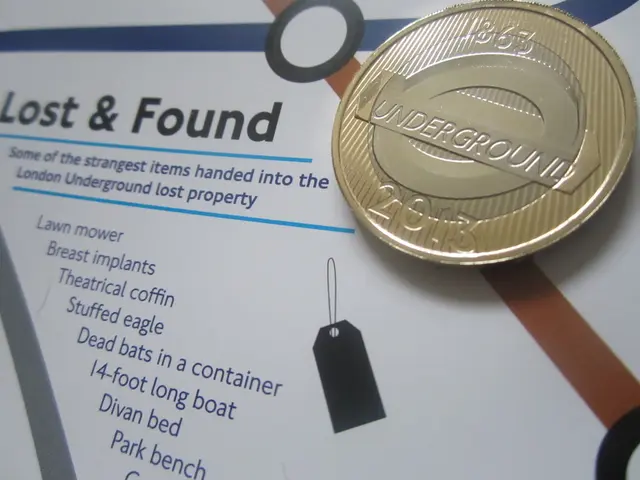Europe's top defense technology funding goes largely to Germany with a massive 90% share of the record amount
Europe's Defense Tech Boom: Helsing Leads the Way
In a significant development for Europe's defense industry, Munich-based Helsing has become the top defense tech startup by funding in the first half of 2025, raising an impressive €600 million ($660 million) in June. This funding round not only propelled Helsing's valuation to around €12 billion ($13.2 billion), making it one of Europe's most valuable private tech companies, but also accounted for a substantial portion of the total defense tech funding in Europe.
According to reports, European defense tech startups secured approximately $971 million in funding during the first half of 2025, surpassing the entire funding volume for the previous record year of 2024, which stood at $605 million. Notably, German startups dominated, accounting for about $881 million, or 90% of the European total.
Other notable defense funding rounds included manufacturers like drone company Tekever and battlefield software firm KELA Technologies. When including Helsing's raise, the total defense-related fundraising amounted to about $1.03 billion.
The surge in funding has had several impacts on the European defense tech industry. The massive capital influx, particularly to Helsing, allows for rapid R&D and expansion, potentially catalyzing a new era of advanced defense capabilities across Europe. Germany’s dominant position in funding signals its central role in shaping Europe’s defense tech ecosystem, drawing significant venture capital interest and probably increasing regional collaboration and competitiveness.
New defense-specific funds such as Estonia’s state-backed SmartCap (€100 million fund) and the Amsterdam-based Keen Venture Partners (€40 million committed towards €125 million target) are emerging, targeting early to growth-stage startups in fields like cyber, AI, robotics, and autonomous systems, further fueling sector maturation.
There is also a shifting emphasis on battlefield software and cyber technologies, reflecting evolving defense priorities and increasing the sector’s technological sophistication. For instance, Helsing's technology has been integrated into battlefield simulations, electronic warfare for fighter jets, and drones in Ukraine.
One of the key players in this boom is ARX Robotics, a German company headquartered near Munich, which secured €31mn ($34mn) in funding in April. ARX's machines drive around on treads and can be fitted with various equipment like radar, mine-sweeping devices, or medical stretchers. The largest ARX drone carries military payloads weighing up to 500kg, including injured soldiers. The company is expanding its fleet of autonomous land drones with the recent funding.
Another interesting development is the £45mn ($58mn) investment by ARX into a new UK factory. Meanwhile, Skyral, a British startup founded by Nick Blair, secured a $20mn round for military simulation tech development.
Cutting-edge, tech-centric firms like Palantir could potentially capture a sizeable share of the defense market as well. Swarm Biotactics, a German company, raised €10mn ($11mn) to advance its biorobotic system that equips live cockroaches with sensors.
In conclusion, the top defense startups by funding in Europe, led overwhelmingly by Helsing in Germany, have not only set new records for capital raised but also stimulated a rapid expansion and modernization of the European defense tech industry, supported by both venture capital and government-backed funds. As geopolitical tensions heighten, it seems venture capitalists are capitalizing on Europe's push to rearm, setting the stage for a promising future in European defense technology.
[1] TechCrunch, (2025). Helsing raises $660 million, becoming Europe's most valuable private defense tech company. [online] Available at: https://techcrunch.com/2025/06/01/helsing-raises-660-million-becoming-europes-most-valuable-private-defense-tech-company/
[2] Forbes, (2025). Europe's Defense Tech Startups Raised $1.03 Billion In H1 2025. [online] Available at: https://www.forbes.com/sites/tomiogiulini/2025/07/01/europes-defense-tech-startups-raised-1-03-billion-in-h1-2025/
[3] VentureBeat, (2025). European defense tech startups are on the rise, thanks to new funds and government support. [online] Available at: https://venturebeat.com/2025/07/02/european-defense-tech-startups-are-on-the-rise-thanks-to-new-funds-and-government-support/
Technology plays a crucial role in Europe's defense industry revolution, with innovative startups like Helsing leveraging it to secure impressive funding and establish a significant presence. Notably, the massive funding raised by Helsing has propelled its technology into various defense applications, such as battlefield simulations, electronic warfare, and drone systems even in Ukraine.
Germany's dominance in defense tech funding, accounting for approximately 90% of the European total, shows its central role in shaping the European defense tech ecosystem and increasing technological sophistication, with new ventures like ARX Robotics and Swarm Biotactics poised to capitalize on this trend.




